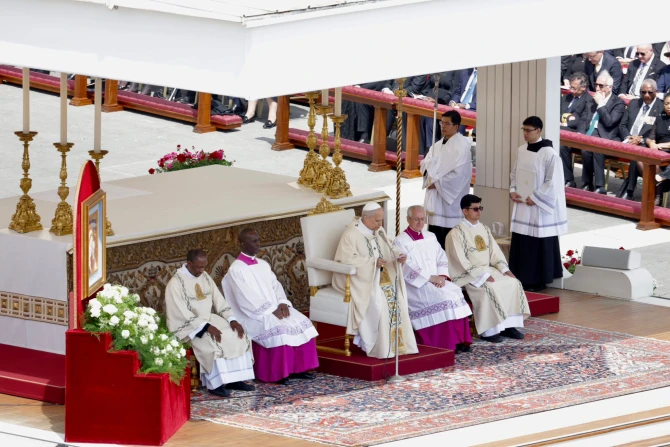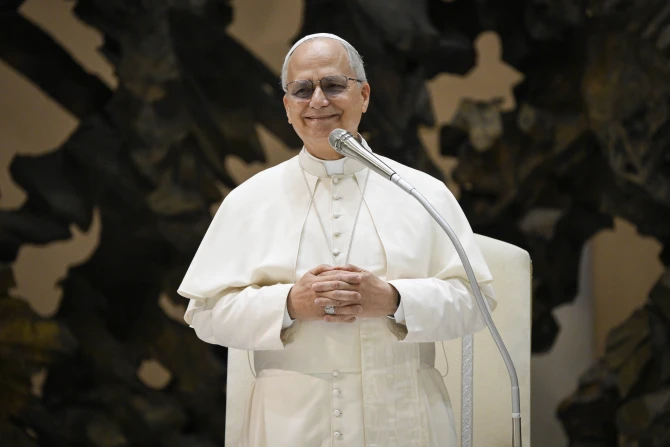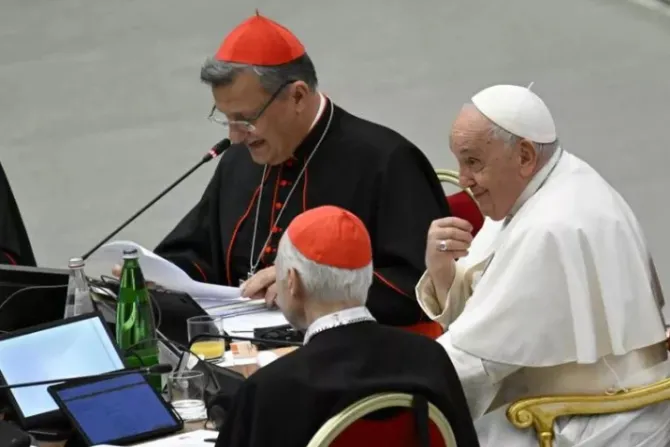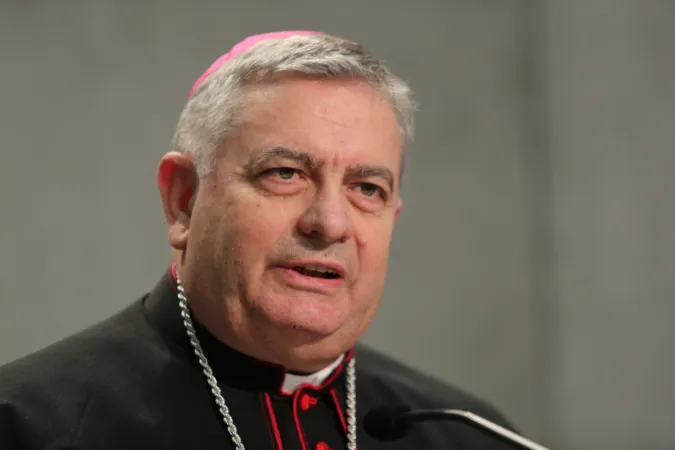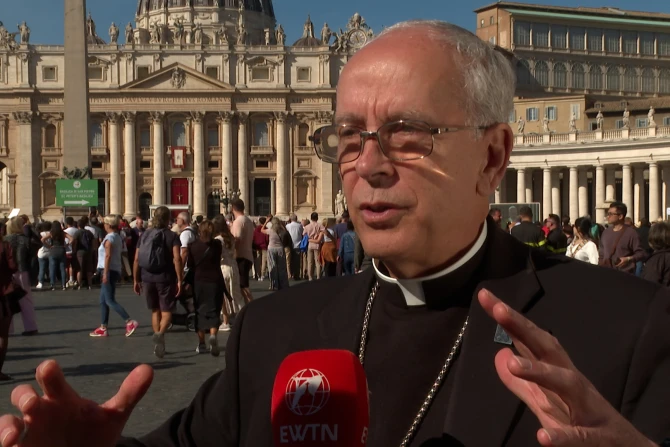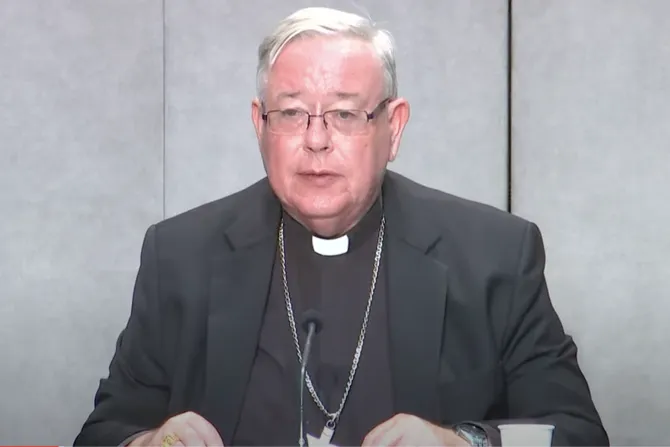Experts warn against misrepresenting the saint’s nuanced thought to serve modern agendas — and urge Catholics to read him in full.
SIGN UP FOR OUR NEWSLETTER HERE
In his own words, Andrew Meszaros is “elated” that St. John Henry Newman will soon be declared a doctor of the Church. And why wouldn’t he be?
As the inaugural holder of the St. John Henry Newman Chair at the Angelicum in Rome (the Pontifical University of Saint Thomas Aquinas), Meszaros’ job is to foster scholarly engagement with the 19th-century English convert. And he believes the more appeals to Newman made in current Catholic discourse, “whatever our theological inclinations,” the better.
But there is one kind of appeal to Newman that Meszaros is not a fan of.
“What is not desirable is instrumentalizing Newman for one particular end, without considering the whole of his thought, and the whole of the Catholic tradition,” he said.
It’s not an uncommon concern. And it might be about to get more prevalent.
The Vatican announced July 31 that Newman (1801-1890), who converted to Catholicism in 1845, would become the 38th doctor of the Church, a title the Catholic Church bestows on a saint whose teachings have significantly contributed to theology and doctrine.
Given that Newman, who died just 135 years ago, explored issues that continue to vex the Church today — from the role of conscience, to lay consultation, to the development of doctrine — he’s often been the subject of superficial and even ideological treatment. And with his impending designation as a Church doctor and the associated rise in stature and authority, the temptation will be even higher to reduce Newman’s complex thought to a grab bag of self-serving lines — unintentional or otherwise.
“There’s a danger of cherry-picking certain things” from Newman, and “lifting quotes out to try to support whatever position one is advancing,” said Michael Moreland, a Villanova law professor who also has a doctorate in theology and studies Newman.
Newman’s Name in Vain?
The tendency to misuse Newman in the service of one’s agenda is nothing new. David Deavel, chairman of theology at the University of St. Thomas in Houston, noted that it was common in the period after Vatican II for theologians to cite Newman in their calls for a more powerful role for the laity, often invoking his teaching on doctrinal development — the deepening and clarification of Church doctrine in continuity with settled truths of the faith.
“Alas, some of them, claiming the ‘liberal’ mantle, seemed to ignore Newman’s understanding that the Church’s authority structure is given by God and that doctrinal development was not a way to overturn past teaching,” said Deavel.
But given how relevant Newman’s thought is to some of the Church’s major flashpoints today, misuse of the Development of Christian Doctrine author’s thought is an ongoing concern.
Father Raymond de Souza, for instance, lamented that the English saint’s name was often taken in vain during the 2023-24 synod sessions in Rome to support positions he never would have endorsed.
“Throughout the long synodal process, whenever a divergence from Catholic teaching was proposed, Newman’s name was surely to be invoked in the manner of an ancient superstition,” Father de Souza wrote for the Register. “Thrice around the circular tables chanting ‘development of doctrine’ and all manner of novel distortions could be entertained.”
No ‘Free Radicals’
Speaking in general terms, Notre Dame theologian Jennifer Newsome Martin said the same complexity and richness of Newman’s thought that makes him such an important Catholic intellect can also make it hard to do him justice.
The problem happens when Newman’s ideas “start to function as ‘free radicals’ detached from their proper contexts,” she said, referring to unstable molecules prone to causing damage when isolated.
For instance, Martin explained that Newman did indeed write in his 1859 work On Consulting the Faithful in Matters of Doctrine that the body of the faithful can reliably witness to Catholic truth by “a sort of instinct.”
However, when Newman speaks about this instinct, he is drawing from the 19th-century German theologian Johann Adam Möhler, who had written that this spiritual sense must be formed via a deep and abiding attachment to the Church “by hearing, learning, and living within her pale.” It’s an emphasis that can be overlooked by those who engage only superficially with Newman’s thought.
“The problem comes when the word ‘instinct’ gets misread as something purely natural rather than supernatural, which dilutes the more robust notion of the sensus fidelium,” or sense of the faithful, “operative in Newman’s account,” said Martin, who heads Notre Dame’s de Nicola Center for Ethics and Culture. “You can see where someone without this context might think Newman has merely opened the floodgates of an irresponsible view of the sensus fidelium, where whatever anyone happened to think should be considered an intimate part of the sense of the faithful.”
In a similar vein, Shaun Blanchard, a theologian at the University of Notre Dame Australia, pointed out that when Newman famously responded to a request to toast the Pope by saying he’d toast “to Conscience first,” he wasn’t rejecting Church authority in a way that applies to today’s debates. Instead, Newman’s comment is best understood within English Catholics’ long struggle to position themselves as both faithful believers but also loyal subjects to king and crown.
“He wasn’t talking about Humanae Vitae,” quipped Blanchard, referring to the 1968 papal encyclical that reaffirmed the Church’s prohibition of contraceptive sex, and which has often been the subject of dissent presented as a matter of conscience.
Reading Newman
Some traditionalists advise steering clear of Newman, given that some exploit his thought to push for radical changes.
But Newman scholars think otherwise. They contend that the solution to the misuse of the soon-to-be-doctor of the Church isn’t to ignore him. Instead, it’s to read him more closely.
For instance, Mundelein Seminary theologian Matthew Levering said that reading Newman makes clear that the 19th-century thinker held to the “dogmatic principle,” or the idea that revealed truths can be reliably conveyed via human language, and to “enduringly true dogma.”
“Intellectual honesty will make it impossible to use Newman to defend the opposite,” said Levering, author of the 2022 book Newman on Doctrinal Corruption.
Even so, Meszaros, the Newman chair at the Angelicum, acknowledges that Newman can be used “to justify diametrically opposite conclusions,” which “might not at first sight seem promising.”
“But the more one studies Newman,” Meszaros said, “the more one can see the interconnectedness of this thought and how, for example, his teaching on conscience does not set up a rivalry with the magisterium, or how his affirmation of the lay faithful is directly linked to the mystery of the Church and all her offices as a whole.”
And as far as he’s concerned, “the more people studying Newman, the better.”
So long as they hear what Newman actually has to say, instead of putting words into the mouth of the soon-to-be doctor of the Church.
This article was originally published by NCRegister.


